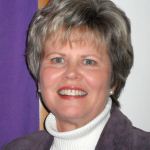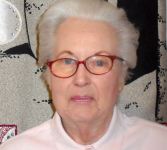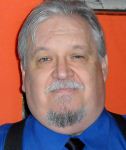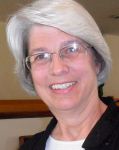Theology: Embracing Trinitarian Theology
Almost ten years ago Jesus called me, and the two churches I serve, to a profound awakening in our understanding of the gospel. This article is a brief description of what we have learned in that journey.
After several years of reading the New Testament, praying, and being mentored by such Christian writers as Athanasius, T.F. and J.B. Torrance, J.M. Feazell and C. Baxter Kruger, I had come to see that the Trinity is not just “a” doctrine. It is “the” doctrine of the gospel. The gospel is about nothing less than human participation in the eternal communion of the Father, Son and Spirit.
The triune God created humanity to participate through the Holy Spirit in the incarnate Son’s communion with the Father. As Paul wrote to the church in Ephesus, “In love he predestined us for adoption to sonship through Jesus Christ, in accordance with his pleasure and will” (Ephesians 1:4-5).
James B. Torrance put it this way:
He who was the eternal Son of God by nature, enjoying eternal communion with the Father, became the Son of Man that we ‘sons and daughters of men’ might become ‘sons and daughters of God’ by grace and be drawn into the Son’s communion with the Father, that through the Spirit we too might call God “Father” (Worship, Community and the Triune God of Grace, p. 82, InterVarsity Press, 1996).
As I began to take seriously the statements in the Bible that speak of “all” being included in Christ, it became clear to me that the Father didn’t create some people for adoption and some for destruction. In Christ he has adopted everyone and delivered everyone from sin and death. Paul wrote in Colossians 1:19-20, “God was pleased to have all his fullness dwell in him, and through him to reconcile to himself all things, whether things on earth or things in heaven, by making peace through his blood, shed on the cross.” Jesus said in John 12:32, “I, when I am lifted up from the earth, will draw all people to myself.”
A plan for all people
Beginning in September 2006, I began to make the Trinity foundational in my preaching to my congregations. I made it clear from the Bible that the Father’s plan is humanity’s adoption as his own beloved children in Jesus Christ through the power of the Holy Spirit. And I made it clear that in Jesus God has delivered all of humanity from bondage to sin and death.
The reaction in my congregations ranged from cautious optimism to electric excitement. Jan Taylor remembers, “I felt uncertainty; I thought we were headed down a trail away from orthodoxy. Thankfully it didn’t take long to recognize that just the opposite was true. It helped so much to see we were following the teachings of the early church as well as the teachings of renowned contemporary theologians.”
 | I am one hundred percent convinced that God loves me no matter what I do. —Maria Olson | |
| There is freedom in knowing that we are in Jesus no matter what we are doing. —Jan Taylor |  | |
 | Be willing to be a learner and empower your people to learn by giving them the tools and resources to discover the truth of the trinity with you. —Bert Caruthers | |
| We should have an openness to God. —Mike Gass |  | |
 | Now I understand that everyone is included whether they know it or not. —Mary Jo Leaver | |
Over the last five years our vision of the triune life of God and our understanding of grace has been broadened and deepened in ways we never expected.
Judy Pass says, “Five years ago I didn’t understand the importance of the doctrine of the Trinity and how it is the framework by which we understand who Jesus is and what he’s done for us.” Bert Caruthers agrees: “The Father, the Son and the Holy Spirit finally make sense to me.”
Maria Olson looks at it from the perspective of someone who didn’t grow up in the church: “Five years ago I still had that mentality of ‘I have to do good in order for God to love me.’ Now I am one hundred percent convinced that God loves me no matter what I do, that I have been included and that there is nothing I or anyone can do that will ever change that.”
For many of us, the change has been in how we view other people. Mary Jo Leaver says, “Now I understand everyone is included whether they know it or not. God’s love in me overflows to everybody I meet: believer, nonbeliever, atheist, Buddhist, Muslim—everybody. I am free to love others without an agenda.”
Suggestions for others
Based on what we have experienced, I would make three suggestions to any pastor or congregation embarking on this process:
- Find a mentor in the gospel. Tim Brassell has been my mentor and he helps me, on a weekly basis, to shape my thinking, speaking, and doing in the light of the gospel.
- Soak your mind in books, articles, and blogs that focus on the reality of who Jesus is for us and who we are in him, and you will find that the what of ministry begins to flow much more naturally.
- Be bold. Those you are ministering to are the Father’s adopted, forgiven children in Jesus whether they know it or not. In the Holy Spirit you can confidently, with wisdom and gentleness, proclaim this truth to them, and the Spirit will back you up.
Judy Pass says that “having a small group where you can discuss what you’re learning, ask questions of others and listen to others helps a lot.” Mike Gass recommends having an “openness to God.” Bert Caruthers points out that it needs to be a journey we take together. She says, “Be willing to be a learner and empower your people to learn by giving them the tools and resources to discover the truth of the Trinity with you.”
More than one person mentioned the helpfulness of such resources as The Great Dance by C. Baxter Kruger, The Shack by William P. Young, and the You’re Included interview series at www.youreincluded.org.
This growth in our understanding of the gospel is changing the way we do ministry. Jan Taylor says, “Every ministry is done in a relational context, and we no longer view the world as separated into ‘sacred’ and ‘secular.’ There is freedom in knowing that we are in Jesus no matter what we are doing. We don’t have to be doing something church related in order for it to be ministry.”
And always remember, Lloyd Briggie says, “Keep an open mind—don’t put limits on God’s love!”
Jonathan Stepp
According to the New Testament, that life of communion with the Father did not begin at Bethlehem. He who was the eternal Son of God by nature, enjoying eternal communion with the Father, became the Son of Man that we “sons and daughters of men” might become “sons and daughter of God” by grace and be drawn into the Son’s communion with the Father, that through the Spirit we too might call God “Father.” The eternal Word who was with God and who was God, the only begotten Son of the Father, who created all things, took our humanity and “tabernacled” among us, that we might see the glory of the Father, and ourselves become sons and daughters of God (Jn 1:11-14). —James B. Torrance, p. 82.
Author: Jonathan Stepp
